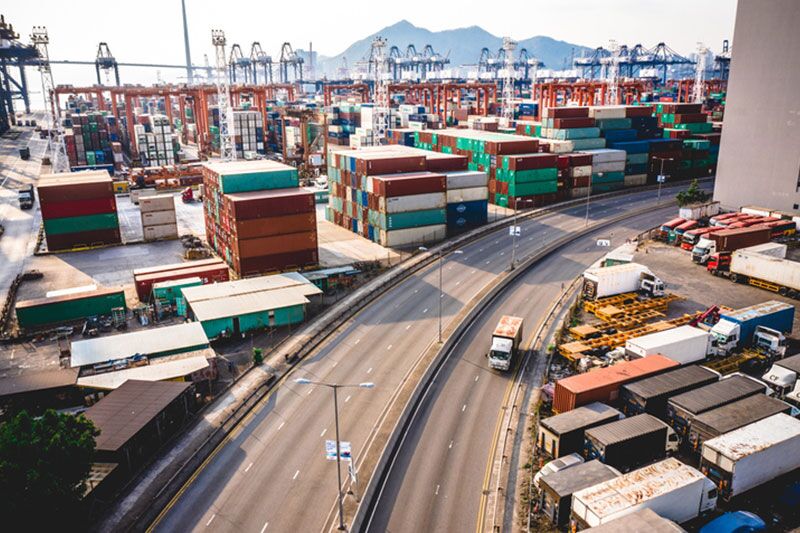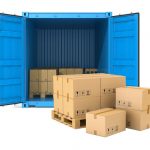Beginner’s Guide to Freight Forwarding in China
Understanding the process of freight forwarding can be overwhelming. In this beginner’s guide to freight forwarding in China, we’ll explain the basics of how freight forwarding works from China and how to find a reliable freight forwarding partner.
What is Freight Forwarding?
Freight forwarding is the process of coordinating the shipment of goods from one place to another, whether it be domestically or internationally. Freight forwarders act as intermediaries between shippers and carriers to ensure that goods are transported safely and efficiently.
Freight Forwarding VS. Project Cargo Services
Freight forwarding and project cargo services are both related to the transportation of goods, but they differ in the type of cargo they handle and the scope of services they offer.
As we already mentioned, freight forwarding is the process of arranging the transportation of goods from one location to another. Freight forwarders handle the logistics of shipping, including planning and coordinating the shipment, document preparation, carrier selection, and risk management. Freight forwarding services are generally used for regular shipments of standardized goods, such as consumer goods or industrial materials.
Project cargo services, on the other hand, are specialized logistics services that are designed for the transportation of complex or oversized cargo, such as machinery, equipment, or large structures. Project cargo services require specialized expertise in handling the cargo, including engineering, route planning, and customs clearance. Project cargo services may also include additional services, such as site surveys, packaging, and installation.
The main differences between freight forwarding and project cargo services are:
- Type of cargo: Freight forwarding is used for regular shipments of standardized goods, while project cargo services are designed for the transportation of complex or oversized cargo.
- Scope of services: Freight forwarding services typically involve standard logistics services, such as planning, coordination, and carrier selection, while project cargo services require specialized services, such as engineering, route planning, and customs clearance.
- Expertise required: Freight forwarders require general knowledge of the shipping industry, while project cargo services require specialized expertise in handling complex cargo.
Some specific roles and responsibilities of freight forwarders include:
- Planning and coordinating the shipment: Determine the most efficient and cost-effective way to transport goods based on the client’s needs and requirements.
- Document preparation: Handle all the necessary paperwork for the shipment, such as customs clearance documents, bills of lading, and commercial invoices.
- Carrier selection: Choose the most appropriate carrier for the shipment based on factors such as cost, transit time, and mode of transportation.
- Warehousing and Distribution: Handle the storage and distribution of goods if required by the client.
- Risk management: Help clients manage the risk associated with shipping, such as insurance coverage for the goods in transit.

Hiring a freight forwarder can bring several benefits to clients, including:
- Expertise and experience: Freight forwarders have in-depth knowledge of the shipping industry and can provide valuable advice and guidance to clients.
- Cost savings: Your freight forwarding partner can negotiate with carriers to get the best rates for shipping, which can result in cost savings for clients.
- Time-saving: They can handle all the logistics of shipping, allowing clients to focus on their core business activities.
- Reduced risk: Freight forwarders can also help clients mitigate the risk associated with shipping, such as delays or damage to goods in transit.
How Does Freight Forwarding Work from China?
Freight forwarding from China typically involves several steps, including:
- Finding a Freight Forwarder company: The first step in freight forwarding is finding a reliable freight forwarder. Freight forwarders will work with shippers to determine the best way to transport goods based on their destination, weight, and size.
- Booking a Shipment: Once a freight forwarder has been chosen, the next step is to book a shipment. The freight forwarder will work with carriers to determine the best route and mode of transportation for the goods.
- Documentation: Freight forwarders will handle all of the necessary documentation for the shipment, including customs clearance documents, bills of lading, and commercial invoices.
- Transportation: Once the necessary documentation has been completed, the freight forwarder will coordinate the transportation of the goods, whether it be by air, sea, or land.
- Delivery: Finally, the freight forwarder will arrange for the delivery of the goods to their final destination.
How to Find a Reliable Freight Forwarder in China
When searching for a freight forwarder in China, it’s important to consider the following:
- Experience: Look for a business with experience in the industry, particularly in the transportation of goods to your desired destination.
- Services Offered: Ensure that the freight forwarder offers the services that you require, such as customs clearance, warehousing, and distribution.
- Pricing: Compare pricing from different freight forwarders to ensure that you are getting a fair price.
- Communication: It’s important to choose a partner who communicates well and provides updates on the status of your shipment.
- Reputation: Check their reputation online by reading reviews from previous clients.
Freight Forwarding in China: Specific Traits, Pitfalls, and Obstacles
Freight forwarding in China differs from other parts of the world in several ways. One significant difference is the complexity of the customs clearance process, which can be time-consuming and require extensive documentation. This complexity can lead to delays and increased costs for clients.
Another challenge in China is the lack of standardization in the shipping industry, which can make it challenging to find a reliable freight forwarder. Clients must do their due diligence when selecting a freight forwarder to ensure that they have the necessary experience and expertise to handle their shipment.
Another common pitfall is the issue of communication. In some cases, freight forwarders in China may not have proficient English-speaking staff, which can lead to miscommunications or misunderstandings. It is essential for clients to work with a freight forwarder who has staff that can communicate effectively in their language.
In conclusion, freight forwarding from China can be a complex process, but with the help of a reliable logistics partner, it can be made easier. By following the steps outlined above, you can ensure that your goods are transported safely and efficiently.





